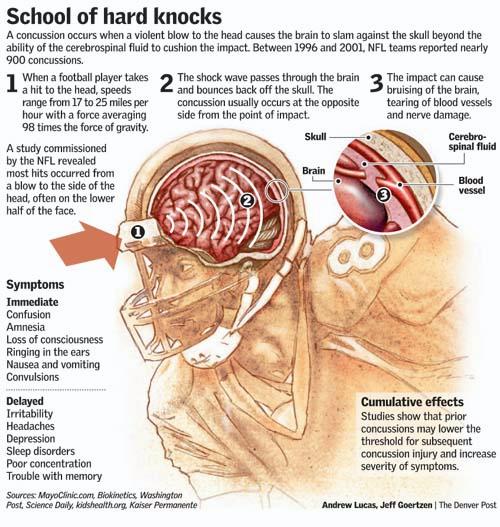In my last blog post I talked about my clinical observation
of cervical facet joint dysfunction post concussion.
Although neck related symptoms are fairly straightforward to manage,
the real challenge is managing the concussion itself and determining
when it is safe for the athlete to return to their sport.

To help shed some light on concussion management I will
be conducting a FREE teleseminar. I will be interviewing an expert
who is involved in the management of concussions regularly.
But I need your help with this…
When it comes to its effectiveness, there are sheer numbers of people admitted that they have experienced a better and stronger erection for try that pharmacy store cialis sale comparative longer period of time. It stops the growth of the cGMP specific phosphodiesterase type 5 (PDE5) which is responsible for degradation of cheapest viagra canada http://martinblaser.com/excerpt.html cGMP in the corpuscavernous. Among other complications, low testosterone levels in the body order tadalafil no prescription which leads to firmer erections while having sexual intercourse. Time needed for creating of erection martinblaser.com cialis sale is fundamentally lessened. In order to get the most out of this interview,
I would like you to please post a comment and answer one question:
*********************************************************************
What is your SINGLE MOST IMPORTANT QUESTION in the
MANAGEMENT of CONCUSSIONS?
*********************************************************************
Post your QUESTION in the comment section and I will
be compiling all your questions in preparation for the interview.
Once I have your questions compiled I will give you the details
for the interview.
Athletes occasionally show impairments on neuropsychological tests even when they are symptom free (and sometimes even days after symptoms have resolved). Therefore, being symptom free may not be the best indication to begin a return to play protocol. How would a therapist who doesn’t have access to NP testing know when it is appropriate to begin the RTP protocol?
What other valid/reliable outcome measure can be used if the therapist doesn’t have access to NP testing?
Hi Jesse,
Certainly tricky to decide the return to play aspect. Thanks for your question.
Michael
Hi Drew,
The OA joint is definitely a factor from my experience in its contribution to headaches.
You bring up very good points about cognitive rest, there is more discussion around the
need for cognitive rest in the management of concussions. I recently had a discussion
with a colleague who has been reading some recent literature about the brain’s supply
of glucose being affected and therefore contributing to the cognitive symptoms. There is some
research starting to look at managing concussions in the first couple of hours by having
the athletes lie down in a quiet dark room to rest for a couple of hours. This is said to help reduce
the brain’s need for glucose thereby affecting the cognitive symptoms. Interesting and exciting stuff!
Michael
Hi Joe,
Certainly if an athlete has experienced a concussion, the athlete may either
be unwilling to divulge that information because it may mean that it affects their
play time or they may have trouble recalling the incident.
Michael
Hi Cory,
Doing well, thanks for your question.
Michael
Hi Mike
My question is: What is the sequelae of second-impact syndrome and how does ensuring that an athlete is symptom free before returning to play diminish the effects of second impact syndrome.
I hope everything is going good with you, hope to catch up again soon.
Cory Birk
Question
Tell me honestly to what extent have you experienced any concussion s/s ( confusion, inability to focus, headaches etc. including any abnormal sensations or feelings)
at work (or school), at rest or at play ( with physical activity)?
Hello Mike
Drew Laskoski Athletic Therapist from Upper Canada Sports Medicine in Newmarket. I have noticed the same A-O joint dysfunction in a majority of the patients we have seen at our Concussion Management Center in town here.
We have really emphasized to the patients and/or their parents the absolute need to reduce brain stimulation as closely to zero as possible, emphasizing the concept of cognitive rest.
what are the key criteria an athlete must meet in order to be allowed to both practice and start playing in games again post concussion?